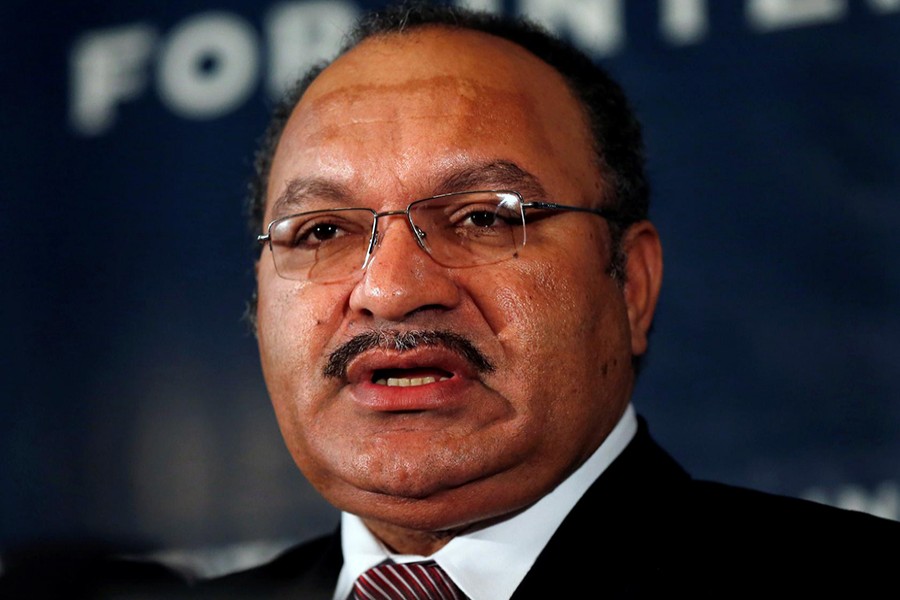
Published :
Updated :

Papua New Guinea (PNG) Prime Minister Peter O’Neill quit on Wednesday after losing the confidence of parliament during weeks of political turmoil in the South Pacific nation, but government supporters in parliament hoped to be able to retain power.
O’Neill was met with applause when he announced to parliament in Port Moresby that he had handed his resignation to Governor-General Bob Dadae on Wednesday morning. The resignation headed off a no-confidence motion he seemed sure to lose, reports Reuters.
“It has been my great honor to serve this nation and lead this nation almost for eight years... unfortunately politics in PNG plays out this way,” O’Neill told parliament.
“For the interests of the ongoing political stability and to ensure that we create confidence in the business community and the economy so that we can continue to have social unity in the country, it is important that I vacate this seat so that we can be able to move on.”
O’Neill was embraced by supporters and shook hands with opposition lawmakers after addressing parliament.
The assembly then adjourned and will reconvene to elect his successor on Thursday, drawing a line under a period of chaos but also triggering a new round of deal-making.
It was not immediately clear whether O’Neill’s government could survive, though government members of parliament were confident of holding on as they crunched the numbers of supporters.
“It’s very open-ended now,” said Paul Barker, executive director of the Institute of National Affairs, a Port Moresby-based think-tank.
“It’s going to be a fascinating 20-or-so hours until we see what the outcome is,” he said.
Analysts say the turbulence could delay resource projects on the drawing board and major energy companies involved in PNG, including Total SA and ExxonMobil Corp, are watching closely.
Political instability is not unusual in the poverty-stricken but resource-rich country. Growing concern over governance and resource benefits not reaching the poor drove the latest attempts to topple O’Neill.


 For all latest news, follow The Financial Express Google News channel.
For all latest news, follow The Financial Express Google News channel.